![]()
A good engineer thinks in reverse and asks himself about the stylistic consequences of the components and systems he proposes – Helmut Jahn
We’re surrounded by chemicals. They exist naturally all around us, but they’re also manufactured and combined in myriad ways to build products and compounds we take for granted and use regularly. The people who create many of these compounds are known as chemical engineers, and their creations have an incredible influence over our society and ability to adapt the world around us to our needs.
One way we can see chemical engineering at work is through its assistance in the creation and maintenance of human nutrition. Chemical engineers have discovered and invented fertilizers, herbicides, and pesticides that protect produce, and help it thrive in a variety of environments. They’ve innovated the ways food is packaged and processed to improve taste, nutritional value, appearance, convenience, safety, and longevity. They’ve also used sterilization to prevent food from spoiling and keep food-borne illnesses from hurting people.
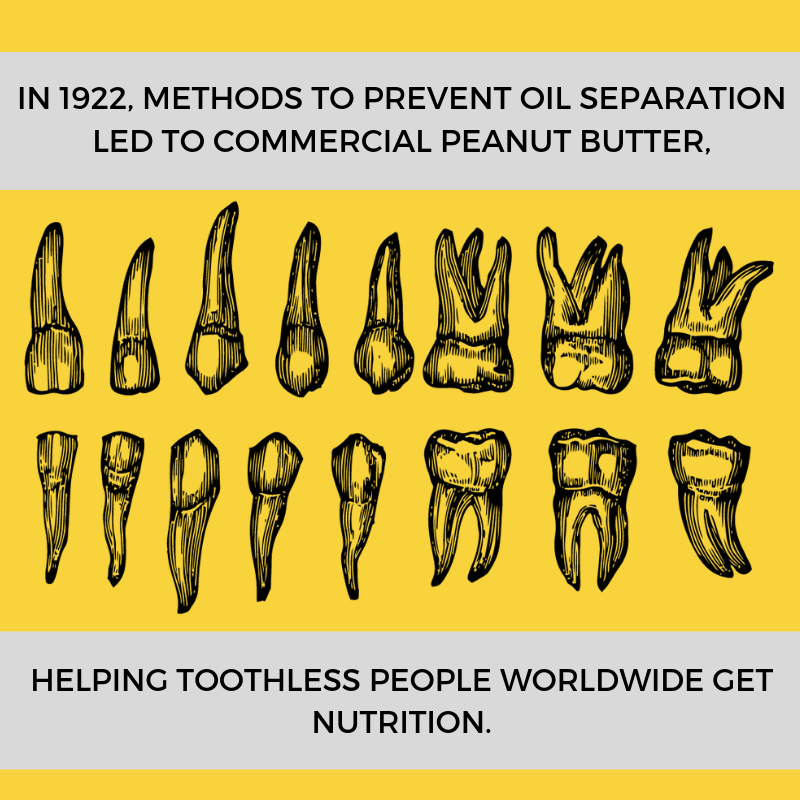
While chemical engineers have helped keep us fed and yielding more from our food, they’ve also made it possible for people to explore the world through the analysis, understanding, and control of hydrocarbon molecules. Through this work, they’ve been able to create efficient gasoline, jet fuel, and much of the human-made energy that society needs daily to function. Now chemical engineers are not just finding out how to get more use from fossil fuels; they’re creating and refining new alternative energies that can be used to cut emissions, eliminate waste and inefficiencies, and potentially extend the amount of time humans can viably live on earth.
This work doesn’t just extend to fuel, but the environments it impacts. Chemical engineers are working every day to lessen the impact of industrial and consumer waste, purify water supplies, and make raised product standards possible through their work. Some of this work comes through green manufacturing like chemical scrubbing, bioremediation for contaminating agents, and even reducing the waste found in universally used products like ibuprofen.
Chemical engineers have also been indispensable in human history through their work in war efforts, and the development of technologies that keep soldiers and police officers safe. Without chemical engineers, we wouldn’t have developed the rubbers that the Allies used to win World War II or the Kevlar vests that are used to protect our troops and police safe from gunfire. We also wouldn’t have the athletic footwear that allows modern athletes to extend their careers and thrive on and off the field.
As the global population rapidly expands, chemical engineers have streamlined the processes that create consumer products, leading to far higher production of the goods we use every day. This has brought costs down dramatically, improving life quality for incalculable millions, if not billions of people throughout history.
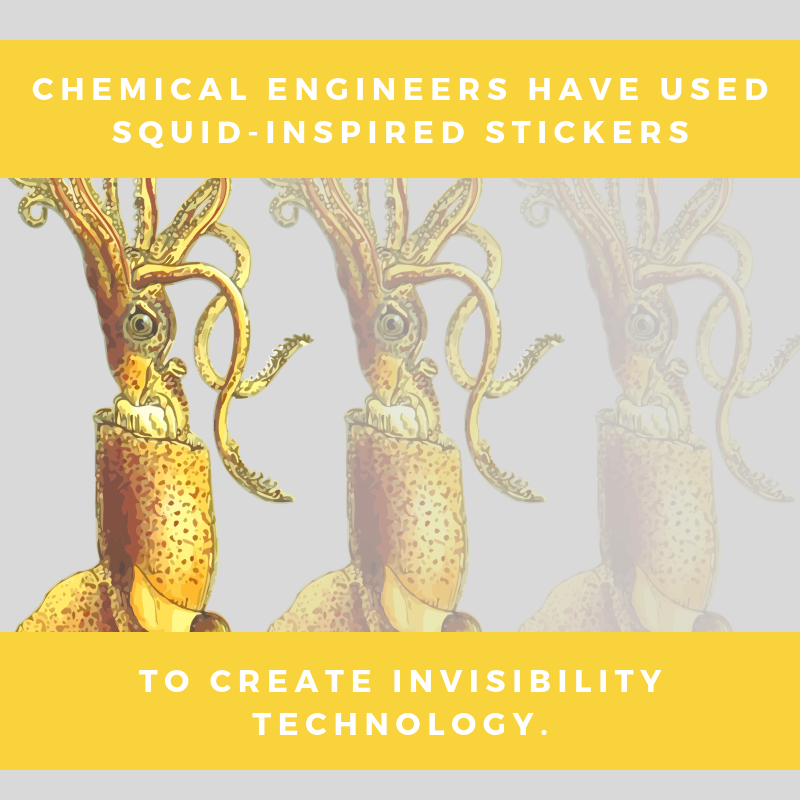
Perhaps one of the most useful areas of chemical engineering is through the medical field. Chemical engineers have created lifesaving drugs that are used every day, like the industrial-scale production of penicillin through fermentation and massive mold growth through aerated and agitated tanks (as opposed to smaller surfaces). They’ve helped build the materials used in prosthetics, and even developed the sunscreens that protect our skin from damage and cancer, among many other medical developments.
These are just a smattering of the applications and roles that chemical engineers play throughout our society and economy. To learn more and explore your options, keep reading, and you may begin to see how you fit into this exciting, multi-faceted landscape.
By earning a chemical engineering degree you can help shape the world around us and the life quality of incalculable people right now, and for years to come.
In this comprehensive resource, we’ll explore the available chemical engineering degrees, including degree levels and diverse specializations, as well as share the work we’ve done at Degree Query to help you find the best chemical engineering degree for you. While you read it, please think about the following questions and considerations:
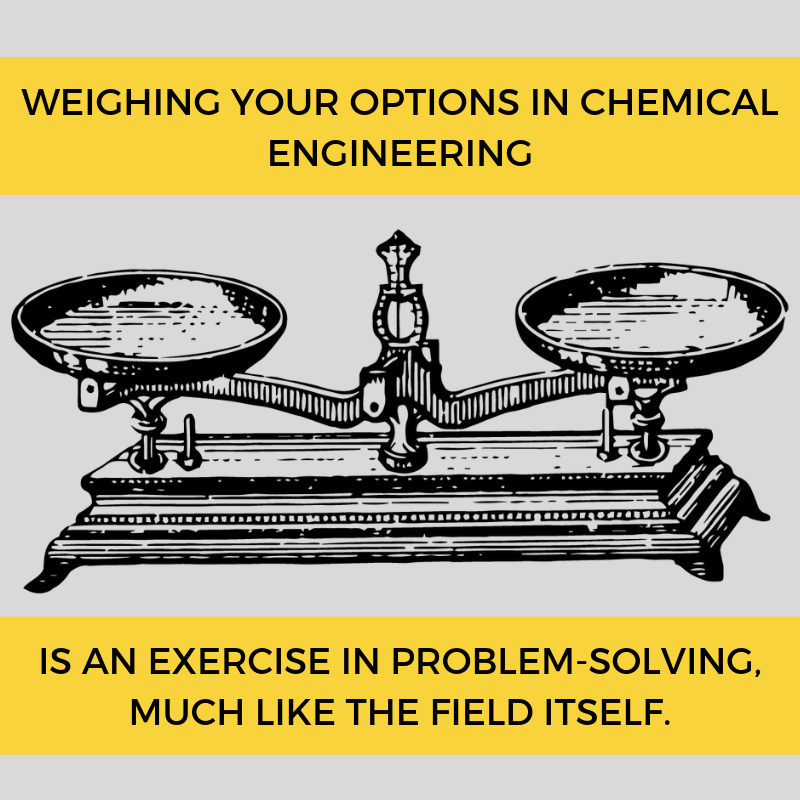
- What are your longterm career goals, and how can a degree in chemical engineering help you achieve them?
- You don’t have to know precisely what you would do in chemical engineering (it’s an extremely versatile and overlapping field), but having some idea will help you in your search for the right degree for you.
- What degree level have you reached so far in your higher education? What job do you want, and what degree level is necessary for you to qualify in it?
- Entry-level chemical engineering positions generally require a Bachelor’s degree, but candidates with graduate or doctoral degrees are far more desirable, especially in senior positions.
- How much can you afford to pay in tuition and other associated costs for a prospective chemical engineering degree, and how much would you need to borrow to pay for one?
- Many different costs come with a chemical engineering program. These can depend on the school you choose to attend, the available delivery formats, scholarships, and loans you may receive, along with many other factors.
- It’s also best practice to choose a school you can afford to pay for instead of borrowing money. That’s not realistic for many people, so if you must borrow money to afford your degree, always try your hardest to take out public loans instead of private ones. You should also always choose schools that are more affordable, accredited, and non-profit instead of expensive, for-profit options.
- How much time can you commit to a chemical engineering degree daily, weekly, and overall before you complete it? Different chemical engineering programs convey their classes through many different formats.
- These can include full-time, part-time, online, on-campus, or through a hybrid of online and traditional on-campus instruction?
- Where do you want to live and work after earning your chemical engineering degree? Different states, cities, and industries have different needs for chemical engineers.
- What is your current career and educational background? How can a specific chemical engineering degree program you’re considering build up your strengths and make up for your weaknesses?
- What are the available specializations in chemical engineering degrees? How can a focus or specialization in the field assist you in achieving your educational and career goals?
This is just a small sample of the questions and considerations you should ponder while searching for a chemical engineering degree (or any other degree program). Throughout your degree search it’s useful to write out additional questions, considerations, desires, needs, and the other factors that will govern what schools you can get in to, and most importantly what you want out of a chemical engineering program.
Now let’s look at the qualities that make chemical engineers successful. Think about whether these apply to you, and if not, whether you’re capable of improving in the areas you’d need to thrive within the field.
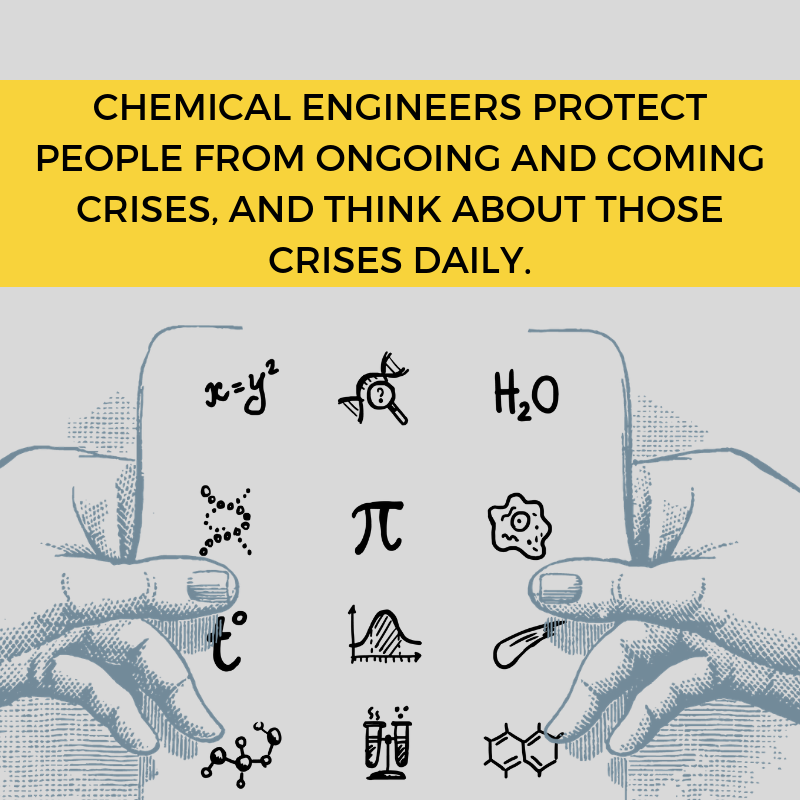
What are the Qualities and Attributes that Make Chemical Engineers Successful?
- Strong Analytical Skills: The core of chemical engineering comes through logic, nuance, and deep inspection of problems and their potential solutions.
- High Motivation: Chemical engineering is difficult, complex work. It requires not just sharp intelligence, but a willingness to commit untold hours to study and hard work, especially in the face of failure and defeat.
- Working Well With Others: Chemical engineers rely on coworkers, bosses, investors, and of course the needs and demands of the population at large. You’ll need to be extremely flexible, incredibly communicative, and emotionally consistent to thrive in this field.
- Strong Conceptualizers: Chemical engineering discoveries and creations begin with a simple design or concept that’s fleshed out and tested again and again. But this process often begins with sketches, or the nugget of an idea that becomes a reality far later.
- Adept Mathematicians and Scientists: Don’t get it twisted: to be a great chemical engineer you need a great natural talent for math and science across many different disciplines. If this isn’t something you know you possess, this field probably isn’t for you.
- Organized and Problem-Solving Oriented: Chemical engineers juggle so much at once, and throughout need to keep their eyes on the prize: solving pertinent problems that improve people’s lives and save businesses money.
Now let’s dive into what we’ve done at Degree Query to help you find your place in chemical engineering, or another educational discipline that can radically change your life and career:
How Can We Help You Find the Right Chemical Engineering Degree for You?
At Degree Query we’ve done so much to help you find the best degree for you, whether that’s in chemical engineering or another field. We’ve ranked schools, jobs, and degree options. We’ve also answered frequently asked questions about the degree options that are currently available, reported about the state of higher education, and built tools like our interactive compare careers resource which was created to help you find the best educational pathway for your needs and desires. Some of the work we’ve done that applies to chemical engineering specifically, and the schools that offer degrees in this area includes:
Rankings
We’ve ranked jobs and degrees related to chemical engineering, including:
- Top 10 Highest Paying Engineering Careers
- 50 Highest Paying Bachelor’s Degrees
- Top 50 Degrees For Changing The World
- Top 50 Degrees for the Future
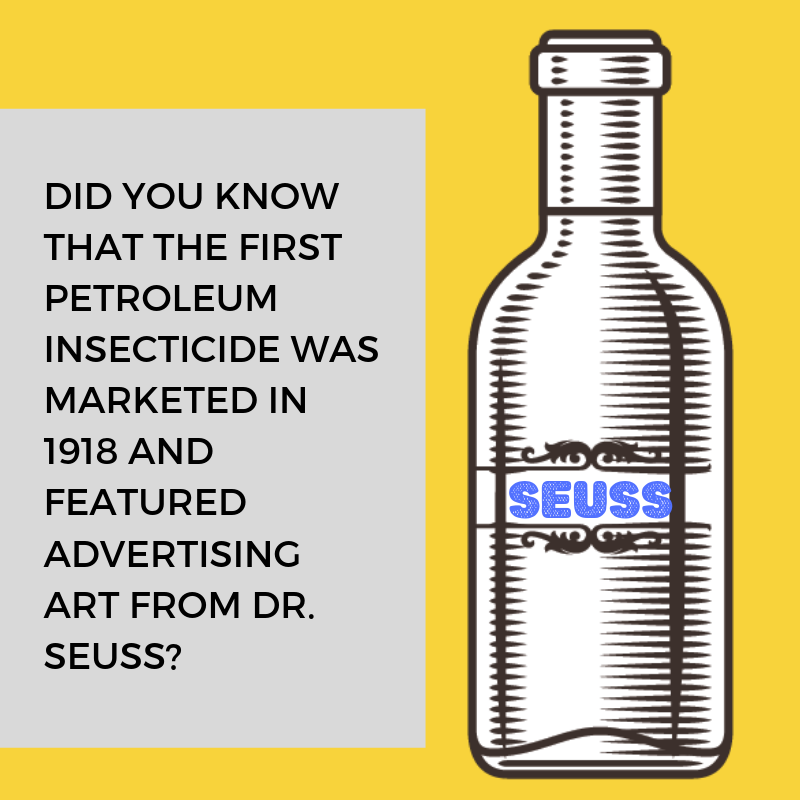
We’ve also answered questions like:
- What are the 5 Best Careers in Environmental Science?
- What degree do I need to be a Chemical Engineer?
- What Is the Difference Between an Engineering Degree and an Engineering Technology Degree?
- What Classes Will I Have to Take for a Degree in Environmental Engineering?
- What Classes Will I Have to Take for a Degree in Biomedical Engineering?
- What Degree Do You Need to Be a Biomedical Engineer?
- What Can I Do With a Degree in Science?
- What Can I Do With An Engineering Degree?
- What Is the Difference Between a Chemical Engineering Degree and a Biomedical Engineering Degree?
- What Classes Will I Have to Take for a Degree in Chemical Engineering?
- What Is the Benefit of a Chemical Engineering Degree Vs a Chemistry Degree?
Now that we’ve looked at the content we’ve produced that’s related to chemical engineering let’s inspect the degrees available to people who want to enter this discipline:
What are the Different Levels of Chemical Engineering Degrees?
Now we’re getting into the meat of your degree options in chemical engineering. Depending on what degree level you’ve reached you’ll want to consider one of the following if you’re still interested in an education and career in the field. Studying chemical engineering in undergraduate can make graduate study in the area much more comfortable, but it’s not necessarily required, except at the doctoral level.
Associates in Chemical Engineering
In these two-year programs students will learn the most essential elements of chemical engineering, taking courses in chemistry, physics, mathematics, and biology. They’ll explore how these disciplines can impact the use of materials in food, drugs, fuel, and much more. At an elemental level, they’ll learn to identify a problem, compile data about it, then use that data to try and solve problems. These programs are often offered through junior or community colleges, which allow students to save time and money in comparison with traditional, on-campus programs. Graduates will be prepared to take on the most entry-level positions in labs, agencies, and other basic chemical engineering openings. They’ll also be ready to transfer into four-year programs and complete their Bachelor degrees in chemical engineering, which is strongly recommended for those who want a longterm career in the field.
Bachelors in Chemical Engineering
Here you’ll study for three to four years depending on the program you choose. You can graduate with a Bachelor of Engineering (BEng) or Bachelor of Science (B.S.) in Chemical Engineering depending on the school you attend. These degrees will teach you how to design and execute economic, sustainable, and safe equipment, materials, and chemical compounds for biological or chemical manufacturing plants, among other organizations. You’ll spend significant time in the lab, but also work to solve pressing real-world problems, like creating clean technologies, or measuring the impacts of chemical processes on the environment. Your work can also lead to new consumer products, vaccines, better versions of existing treatments like chemotherapy, and so much more. Some programs can help you earn a Master’s in Chemical Engineering in hybrid programs that combine a Bachelor’s and Master’s program depending on your grades and coursework. Speaking of which:
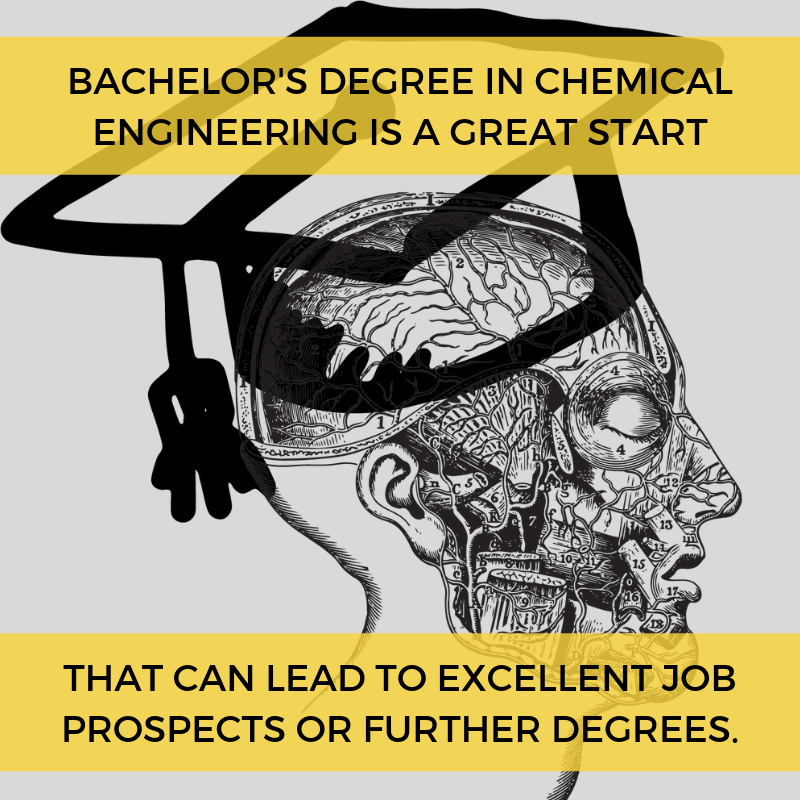
Masters in Chemical Engineering
In these programs you’ll gain an advanced understanding of chemical engineering, completing required modules and doing a good deal of elective studying to build a set of skills that will qualify you for many of the positions available to chemical engineers across the economy. These programs can be completed in as little as 16 months, but can also take four to five years depending on your delivery format, course schedule, as well as previous experience and coursework. In addition to a graduate level inspection of biology, physics, math, chemistry, and how they can be used to create and refine a wide range of products, treatments, and human-made resources. You’ll also gain an incredible understanding of risk management, how to work in chemical engineering safely, risk management, knowledge of the financial implications involved in chemical engineering, and much more. These programs often culminate in a thesis or independent dissertation (and its defense) on a topic of your choice (within chemical engineering of course).
Doctorates in Chemical Engineering
These degrees generally take four to five years to complete and prepare graduates to work at the very highest levels of chemical engineering, whether that be in research, education, or executive positions at drug companies, fuel organizations, and throughout the chemical engineering landscape. These programs often lead to a Doctor of Philosophy in Chemical Engineering, but can also lead to a Doctor of Science in the field, but are generally identical in their contents. These programs are primarily based around an extremely comprehensive independent research project and the doctoral dissertation it leads into (as well as that dissertation’s defense).
Now that we’ve looked at the different degree levels in chemical engineering, let’s explore available degree specializations:
What are the Different Specializations Within Chemical Engineering
There are many different focuses you can select in a chemical engineering degree program. Here are some of the available options:
Materials Synthesis
Here you’ll learn to create new products and materials out of plastic, metal, and much more. You’ll learn and make use of biomaterials, ceramics, nanoparticles, with the goal of improving many processes, especially concerning bettering life quality for others, making businesses more efficient (and thus more profitable), among other outcomes.
Materials Processing
Here you’ll really lean into how materials and processes can be made safer and more effective. At its heart materials processing is about problem-solving. You might deal with dangerous materials, gas or oil, and the separation or transportation of them all. You’ll gain an incredible understanding of different substances in order to be successful in this specialization.
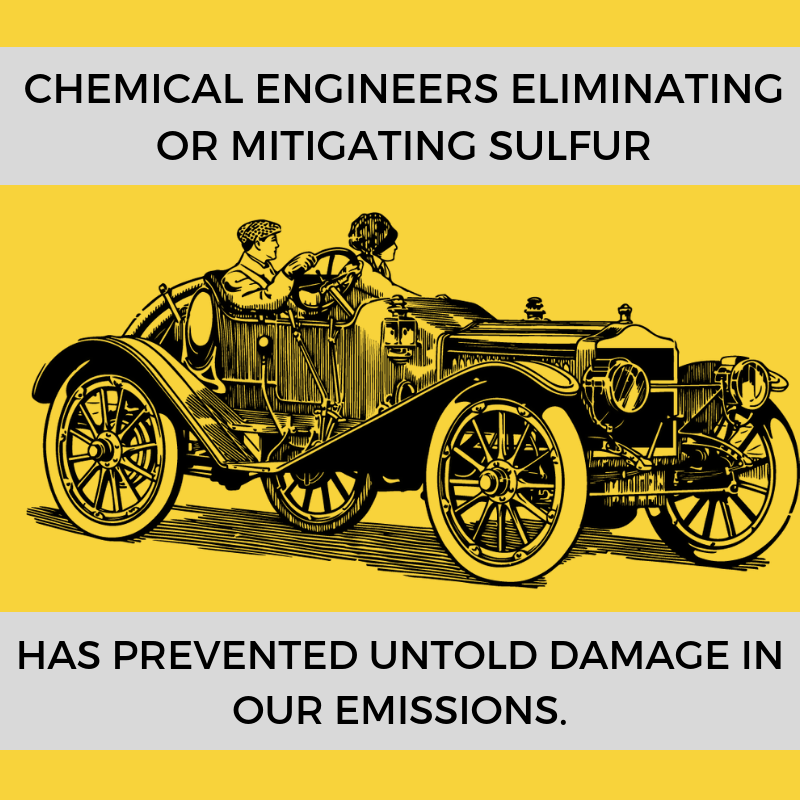
Alternative Energies
This is your opportunity to be at the forefront of renewable, sustainable energies. You’ll likely work with batteries, biofuel, wind, and solar power. Your creations will pay dividends for years to come and could extend the viability of the planet for human and animal life. Mitigating climate change is going to be a vital part of science and the economy for years to come, and you can be a part of that by working with alternative energies.
Food Engineering
As we’ve previously discussed, creating or improving food chemically is an essential part of chemical engineering. This can involve additives and processing that can lead to higher yields of naturally occurring food, breeding food that takes longer to go bad, and adding more health benefits to the foods we eat. This field is extremely important, especially considering that a significant part of the global population are struggling to get consistent nutrition.
Biomedical Chemical Engineering
Biology and chemistry are deeply intertwined, and any biomaterials are made up of chemicals. As a chemical engineer in biomedical disciplines, you can use chemicals to create physical responses in organisms, and much more. This work can lead to developments that save or improve lives, among many other outcomes.
Environmental Engineering
The same way chemical engineering can be used to impact organisms, it’s also extremely useful in the development or improvement of environments big and small. In these specialties, you’ll learn to mitigate or eliminate hazardous materials, work on controlling the impact of pollution, or anything else that negatively effects environments. These pursuits can also apply to get the most out of an environment for a business.
Chemical Engineering Design
Here you’ll use the latest technologies and computer-aided design programs to create new processes and theories that are then tested and utilized in the real world. You’ll look at how systems and processes work, simplifying them whenever possible to create exponential utility for businesses and people.
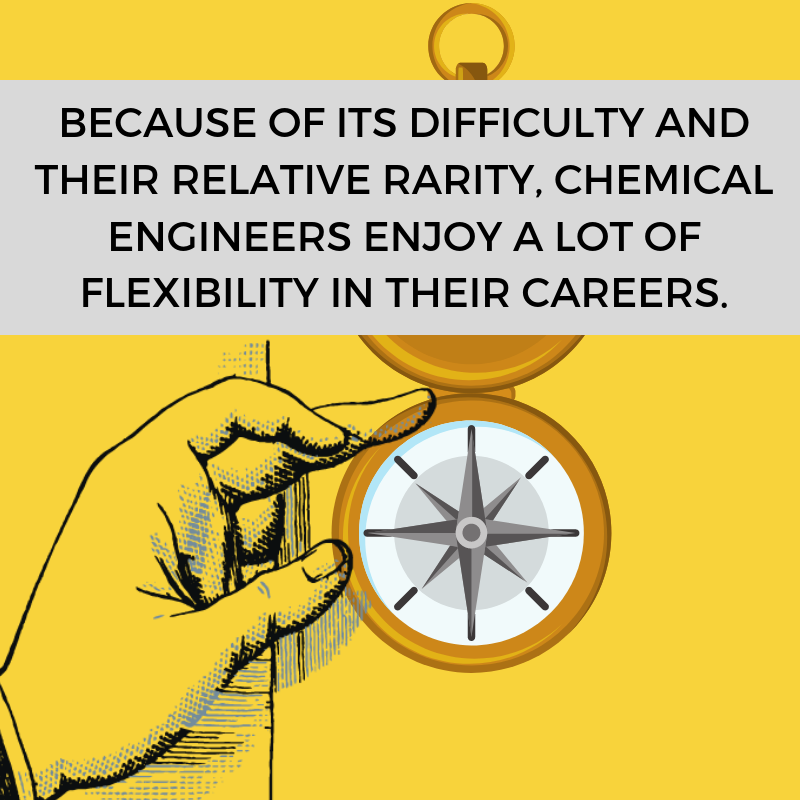
Now that we’ve looked at the degree options and the specializations in the field of chemical engineering we’re almost ready to wrap up. But first:
Chemical Engineering Degrees in Conclusion
We hope you’ve found this guide extremely helpful. Before we go, let’s take a look at how much you can earn while working as a Chemical Engineer.
According to the U.S. Bureau of Labor Statistics, chemical engineers earned a median pay of $104,910 in 2018 or $50.44 per hour. There were 32,700 of these positions in 2016, and BLS predicted an 8% growth between 2016-26, leading to 2,500 new jobs. The typical entry-level education for these roles was a Bachelor’s degree.
The lowest 10% of people in these positions earned less than $64,890 in 2019, and the highest 10% earned over $169,770. Areas associated with higher pay include the petroleum and coal industries, research and development roles, engineering services, wholesale trade, and pharmaceutical or medicine manufacturing.
Remember, if you find a program or school through our content that you think is a good fit, it’s beneficial to send an exploratory email requesting more information about the application process to them. You’ll likely receive valuable information about their program, what you can do to better your chances of being accepted to it, and learn more about whether it’s a good fit for you or not.
Here’s to a successful career and education in chemical engineering, or whatever field you decide to enter or continue your education in! Good luck!

